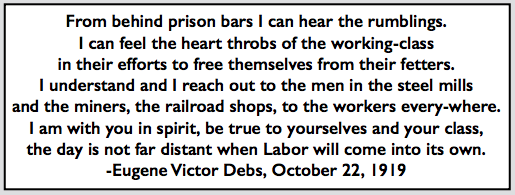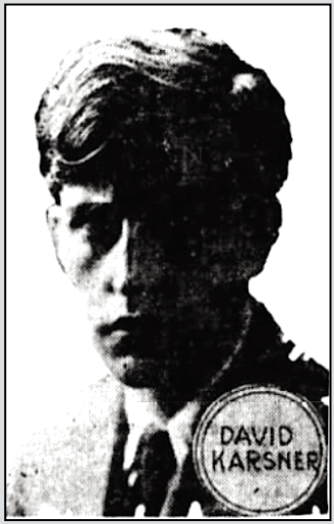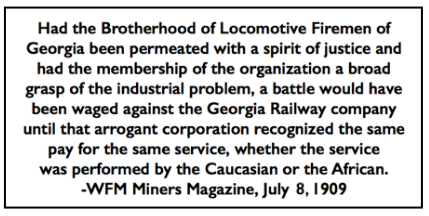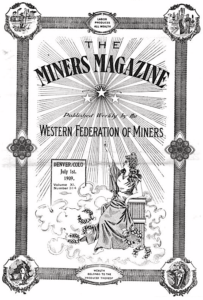 —————-
—————-
Hellraisers Journal – Thursday April 10, 1902
How Six Months in the Woodstock Jail Made a Socialist of Eugene Debs
From The Comrade of April 1902:
As I have some doubt about the readers of “The Comrade” having any curiosity as to “how I became a Socialist” it may be in order to say that the subject is the editor’s, not my own; and that what is here offered is at his bidding—my only concern being that he shall not have cause to wish that I had remained what I was instead of becoming a Socialist.
On the evening of February 27, 1875, the local lodge of the Brotherhood of Locomotive Firemen was organized at Terre Haute, Ind., by Joshua A. Leach, then grand master, and I was admitted as a charter member and at once chosen secretary. “Old Josh Leach,” as he was affectionately called, a typical locomotive fireman of his day, was the founder of the brotherhood, and I was instantly attracted by his rugged honesty, simple manner and homely speech. How well I remember feeling his large, rough hand on my shoulder, the kindly eye of an elder brother searching my own as he gently said, “My boy, you’re a little young, but I believe you’re in earnest and will make your mark in the brotherhood.” Of course, I assured him that I would do my best. What he really thought at the time flattered my boyish vanity not a little when I heard of it. He was attending a meeting at St. Louis some months later, and in the course of his remarks said: “I put a tow-headed boy in the brotherhood at Terre Haute not long ago, and some day he will be at the head of it.”
Twenty-seven years, to a day, have played their pranks with “Old Josh” and the rest of us. When last we met, not long ago, and I pressed his good, right hand, I observed that he was crowned with the frost that never melts; and as I think of him now:
“Remembrance wakes, with all her busy train,
Swells at my breast and turns the past to pain.”My first step was thus taken in organized labor and a new influence fired my ambition and changed the whole current of my career. I was filled with enthusiasm and my blood fairly leaped in my veins. Day and night I worked for the brotherhood. To see its watch-fires glow and observe the increase of its sturdy members were the sunshine and shower of my life. To attend the “meeting” was my supreme joy, and for ten years I was not once absent when the faithful assembled.
At the convention held in Buffalo in 1878 I was chosen associate editor of the magazine, and in 1880 I became grand secretary and treasurer. With all the fire of youth I entered upon the crusade which seemed to fairly glitter with possibilities. For eighteen hours at a stretch I was glued to my desk reeling off the answers to my many correspondents. Day and night were one. Sleep was time wasted and often when, all oblivious of her presence in the still small hours my mother’s hand turned off the light, I went to bed under protest. Oh, what days! And what quenchless zeal and consuming vanity! All the firemen everywhere—and they were all the world—were straining:
“To catch the beat
On my tramping feet.”My grip was always packed; and I was darting in all directions. To tramp through a railroad yard in the rain, snow or sleet half the night, or till daybreak, to be ordered out of the roundhouse for being an “agitator,” or put off a train, sometimes passenger, more often freight, while attempting to deadhead over the division, were all in the program, and served to whet the appetite to conquer. One night in midwinter at Elmira, N. Y., a conductor on the Erie kindly dropped me off in a snowbank, and as I clambered to the top I ran into the arms of a policeman, who heard my story and on the spot became my friend.


 ———-
———-

 ———-
———-